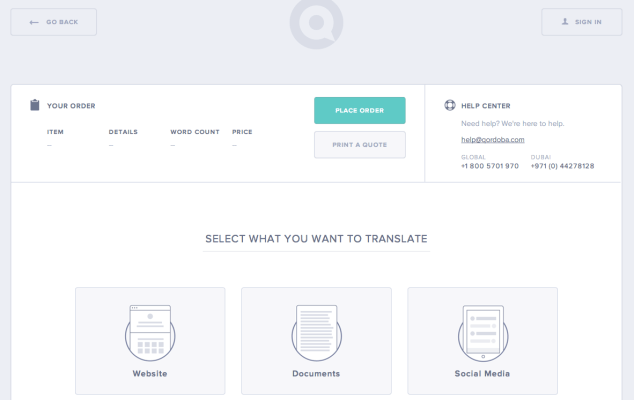Dubai-based Qordoba solves a need your own startup may have encountered: namely, that of localizing your product to new markets. It does so using human editors, translators and subject matter experts, as you might expect a company like this to do, but it has a strong tech focus, too. The market opportunity is upwards of $35 billion according to Qordoba, and founder and CEO May Habib says it’s ridiculous that no localization tech company has emerged to take a dominant role in the industry. Becoming that leading player is why Qordoba raised $1.5 million for its Series A round from MENA Venture Investments and Silicon Oasis Ventures.
Qordoba’s tech angle might not be the one you’d expect, however: Machine translation is a tiny, almost insignificant part of how they take client materials and prepare them for a new language and new international market. Instead, the company uses tech to streamline the process of sourcing talent to complete its jobs, and to manage those linguists and translators who are working on the localization projects while the work is ongoing.
“Our algorithms are kind of insane,” she said in an interview, clearly proud of Qordoba’s approach to the software side of its business. “It impacts your ranking how long it takes you to respond to an email as a linguist. We send SMS notifications when jobs are available within the dashboard, so people know when they have to go to check their email to accept a job or not. So it’s pretty sophisticated in the way that we manage and screen our linguists.”
Where Qordoba differs from other professional translation offerings like Gengo is in its ability to handle tasks with massive scale and complexity. Habib notes that the startup evolved from work they were doing sourcing translations for books and other sophisticated texts for the Arabic-speaking world, and says this means they started from a point of high complexity. What this means in practice is that Qordoba can handle full-scale localization projects of things like academic textbooks, legal documents and entire mobile apps and websites.
Because of this, Habib says she prefers to think of Qordoba as “expert-sourcing” rather than crowdsourcing. The proof of the efficacy of this model is apparent in the clients that the company has lined up so far, which include Groupon, LinkedIn, HSBC, SAP and many more. The startup is seeing a 20 percent month-over-month growth rate in terms of new business, and has already set up shop in both Dubai and Frankfurt with full-time employees also based remotely around the world.
Qordoba’s focus is on providing small, versatile teams with the platform and tools they need to accomplish true localization, which included not only language translation service, but also making sure the content is a natural cultural fit with the new target market. For that reason, it’s not necessarily in direct competition with quick crowd-sourced translation, which handles smaller jobs where attention to detail and content isn’t quite as important.
But for that same reason, Habib admits that so far, they’ve found machine and computer-assisted translation of limited value. There’s a huge knowledge store they’re developing, which leverages work done on past projects to cut down on re-work with new endeavors in the same vertical to keep costs down, except in situations like banking, where doing so wouldn’t be appropriate because of privacy. But people still ultimately do the vast majority of work.
Qordoba spent some time and money early on focusing on high-caliber machine translation services, but Habib says it’s still far away from the point where it will be all that useful in full-fledged localization of material that isn’t very basic and strictly informative.
Qordoba so far has around 5,000 freelancers working on its translation and localization projects, and sees that number growing. This round adds to its $500,000 in seed funding, and will help it continue to build out its product development efforts.
